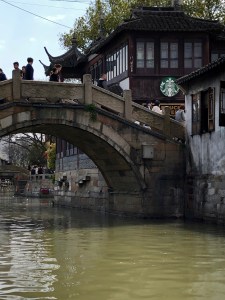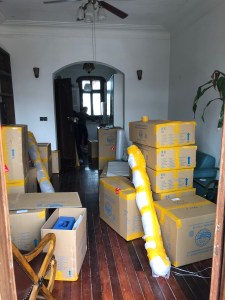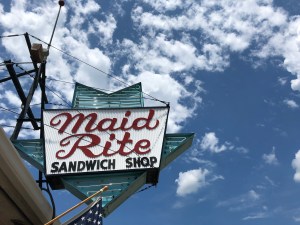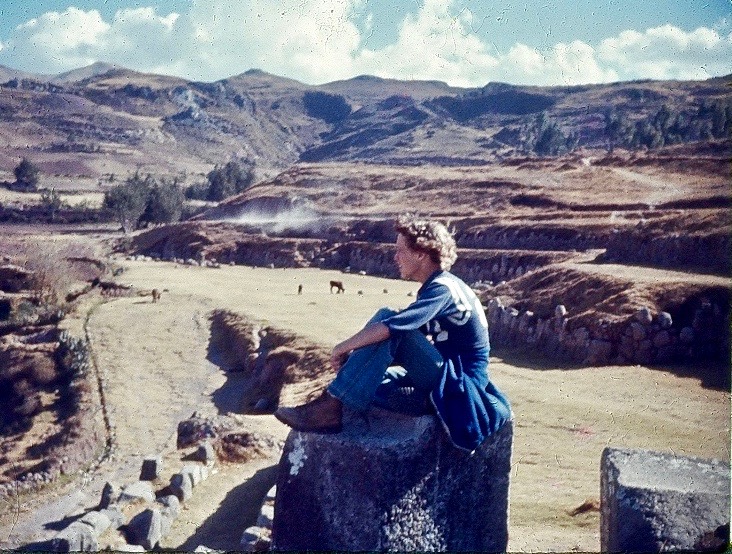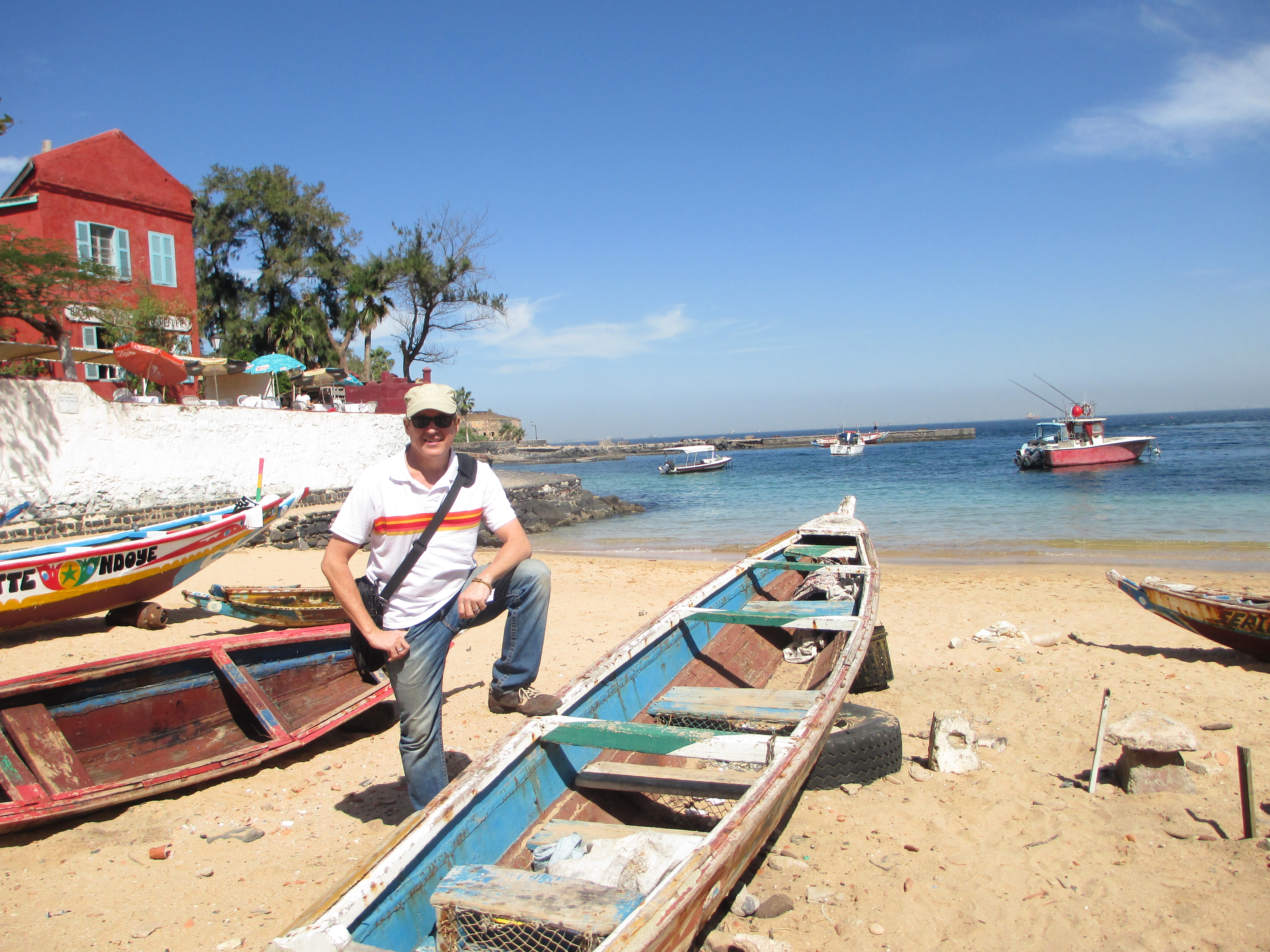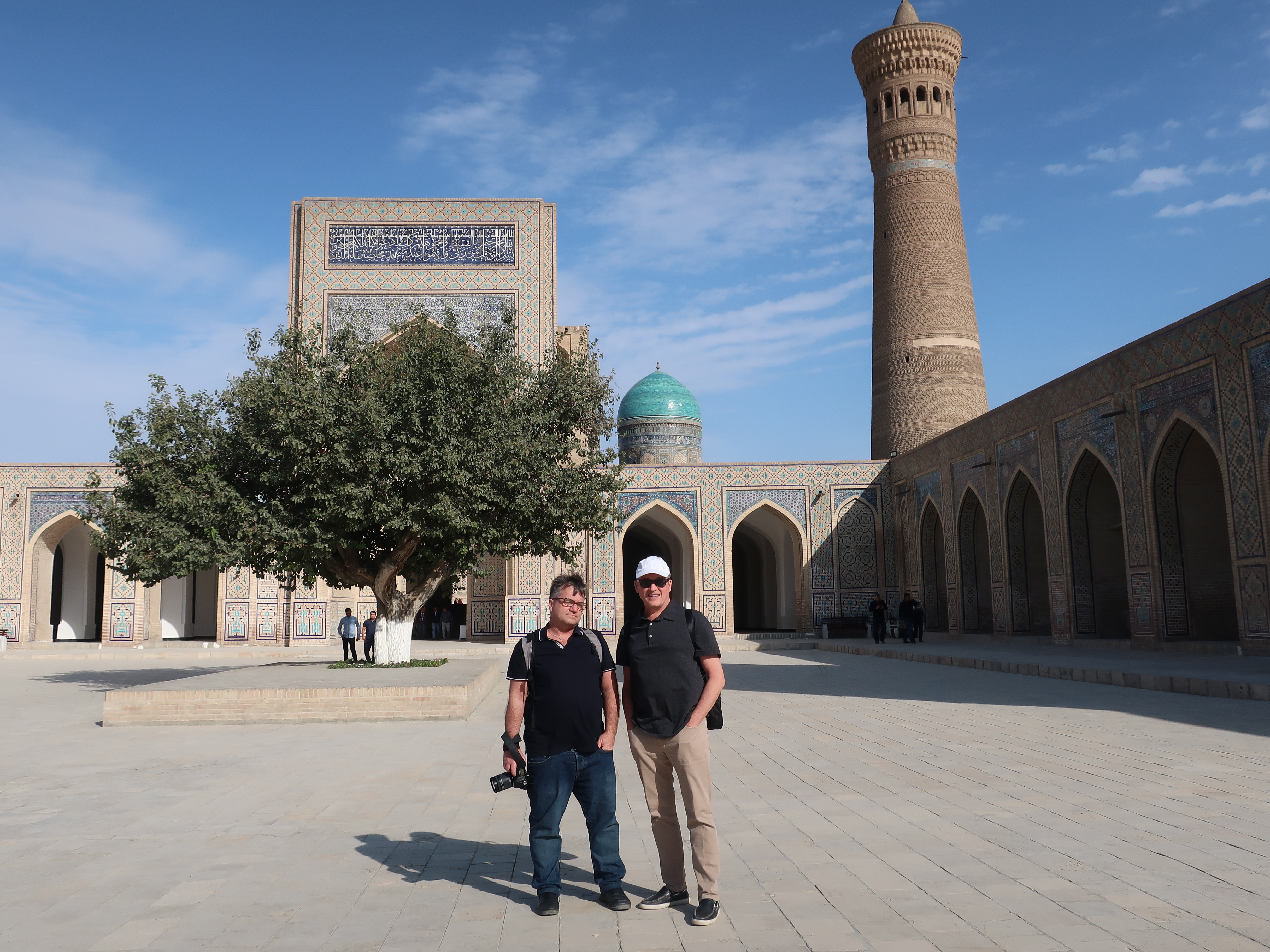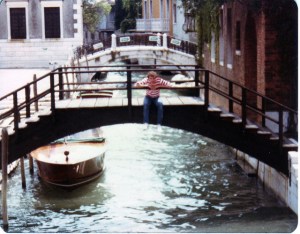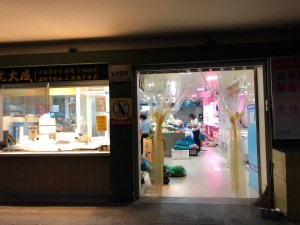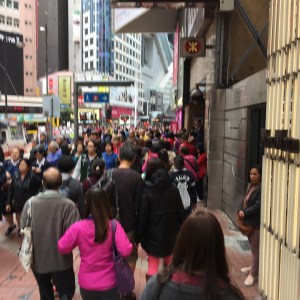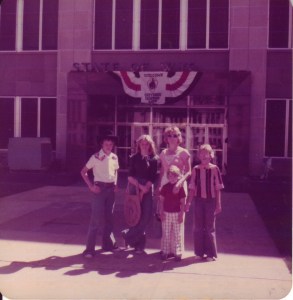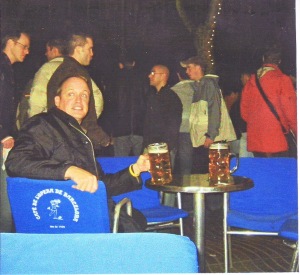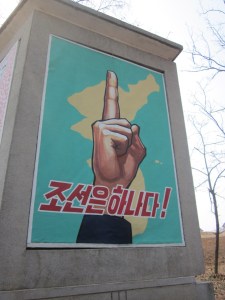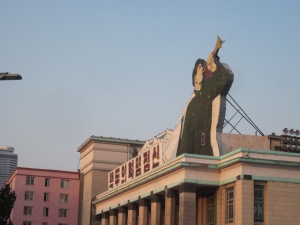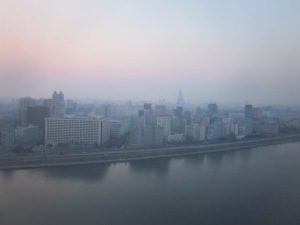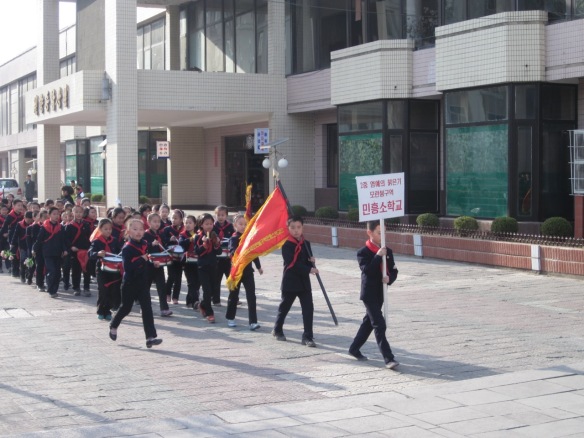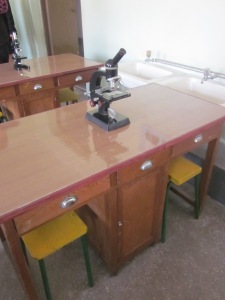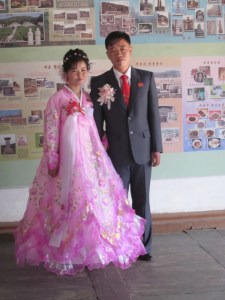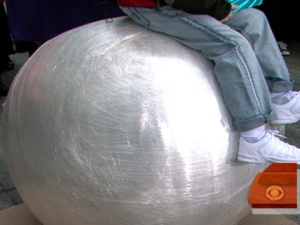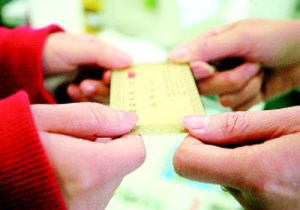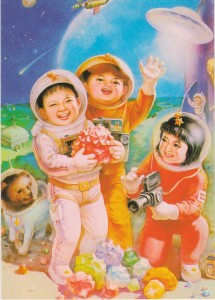When I was sent to Trujillo, Peru as a spunky 16-year-old exchange student, I attended a boy’s school with my host brother Paco. The school building was 123 years old and showed every year of its age. It had been severely damaged in an earthquake a decade before, then further damaged by a recent fire. Bars covered the open windows. Our main classroom had a basketball-sized hole in the floor where I could wave at the students below and practice my Spanish, like “Voy a escupirte en la cabeza” (“I am going to spit on your head.”)
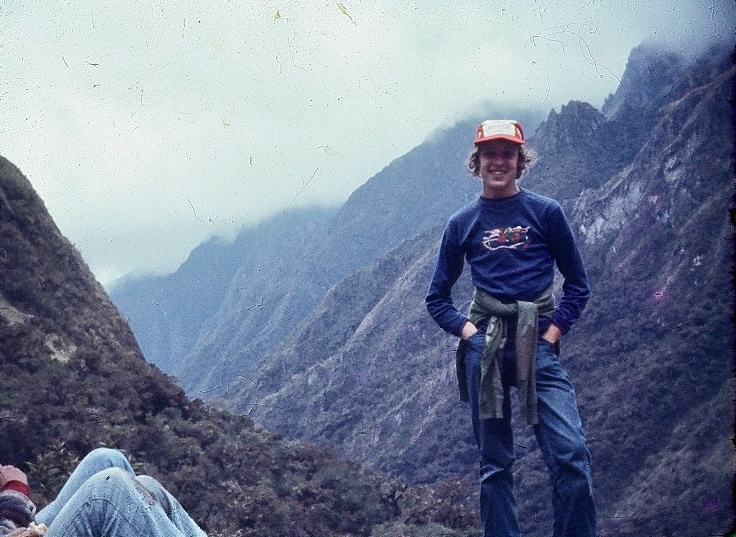
A strong scent of urine permeated just about the whole building, so I spent a lot of time not breathing through my nose. Aside from dry mouth, this was also a bit of culture shock for me. My fancy high school back in Illinois was barely five years old, and featured a state-of-the-art theatre, floor to ceiling tinted glass, and pleasant, landscaped courtyards. It smelled like Jovan Musk and Love’s Baby Soft, blended with the smell of French fries which you could buy every day at lunch.
I suppose this was the first time I realized how much a school’s environment could impact learning. I mean, doing algebra is already challenging, but doing it in a crumbling building that smelled like a gas station bathroom was downright torture.
Thinking about school environment brings me to my visit to Ron Clark Academy in Atlanta, Georgia. Clark is a former Disney Teacher of the Year and the subject of a TV movie (starring Matthew Perry!) about his experiences teaching elementary school in Harlem. He’s a motivational speaker, author of four books on education, and the co-founder of Ron Clark Academy, a private school that brings in hundreds of teachers every Thursday and Friday for a dose of super-charged, high-octane, revival-meeting-like professional development.
The Ron Clark Academy is housed in a former abandoned warehouse in the south part of Atlanta. But don’t picture rusty corrugated metal and pigeons flying through broken windows. Nope, this school environment is otherworldly. There’s a subtle hint at what’s to come at the school entry, where massive brick columns support an arch used as a perch for a car-sized, blue dragon ready to pounce on any boring teacher who dares to enter.

The dark, Hogwarts/medieval interiors reminded me of a Disney attraction, jaw-dropping at first, but with a closer look, clearly a re-creation with lots of painted illusions. Don’t get me wrong–it’s awe-inspiring for sure as you walk through the first time (just like my first time in Disney’s Haunted Mansion when I decided I was going to hide from my parents and live there).
But for someone like me who likes to change things up now and again, I think I’d tire of spending multiple years in a place with such a specific theme. I mean, how long do you really want to hang out at Medieval Times once you’ve finished your giant turkey leg and watched the jousting tournament? To be fair, it’s all about the students and I’m sure they think they’ve died and gone to heaven (there’s a digital ceiling in the rotunda, for goodness sakes, with flying dragons zipping across!).
Ron Clark is known for some unconventional approaches, like standing and walking on top of desks and tables during class, with the students following suit. I’d love to try this in my own classroom—I’m all about the novelty (my classroom features a mannequin leg, a fake moustache collection, and a funky Friday dance every week).
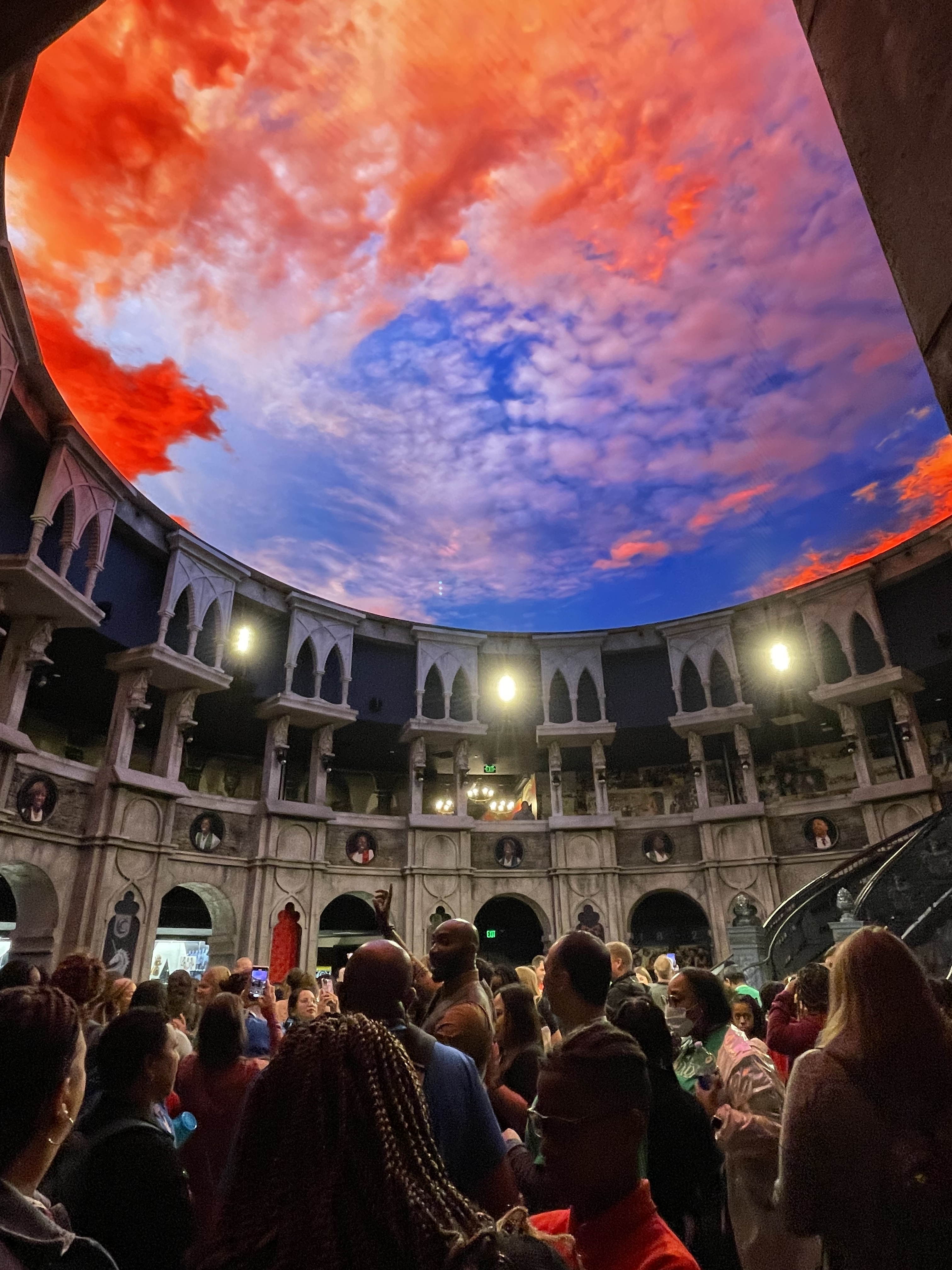
But last year I was standing on a student desk to put up a poster, and one desk leg gave way. Had I not grabbed onto the smartboard, the CSI people would have been analyzing brain matter and such. But I’m sure Ron Clark’s desks are made of magically reinforced steel, and plus they probably just use that Harry Potter “reparo” spell to fix any broken legs (desks or humans).
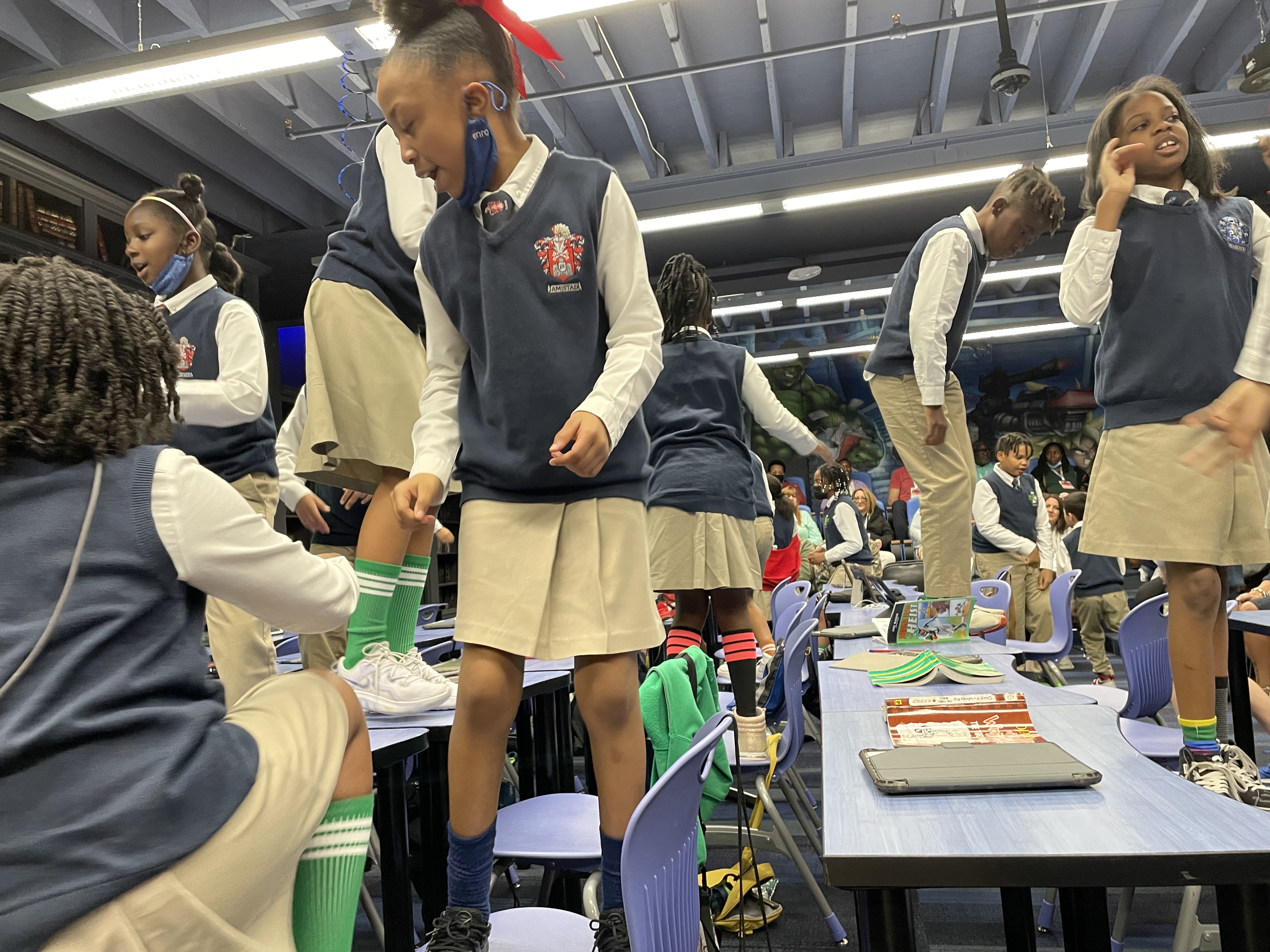
As far as curriculum, I didn’t really see any common thread through the classrooms I visited, though all the teachers were extremely dynamic and interesting—not a boring or nagging teacher in sight. You know that kind. They say, “God these kids are awful! They just don’t want to learn; they are SO lazy. No motivation! This generation is THE worst…..blah, blah, lazy parents, blah, blah, society today, blah, blah, cell phones…” Of course they say this as they plop a stack of dull worksheets in front of their students and return to their own desk, where they can secretly eat their entire stash of Junior Mints and scroll through Facebook looking for kitchen hacks.
That’s the ticket, right? Just don’t hire crabby, lazy, mean teachers at your school. I suppose as a charter school (and a very famous one at that), Ron Clark Academy can be super selective. I’ve yet to be at a public school that doesn’t have a few teachers who would function better as a paperweight. I once worked with a teacher who was so uninspired and lazy she gave her students a can of soda just so they would do the dull worksheets she bought from Teacher Pay Teachers. Geez, nothing like promoting illiteracy AND tooth decay.
I was fortunate to have an all-expenses paid trip to the “RCA EXP” (Ron Clark Academy Experience, for those not in the know) which costs a little over $1,000 to attend for two days. This fast-paced, head-spinning visit allows you to experience students in different classrooms (Ron Clark’s math classroom was in an amphitheater-like space, painted floor to ceiling with Star Wars characters), a couple of rousing sessions in the auditorium (smoke machines, blasting music, flashing disco lights, and dancing, lots of dancing), a trip down the famous slide that goes from the 2nd floor to the 1st floor, and best of all, lunch with a student who tells you about their time at RCA.

Now when I say a fast-paced visit, I mean like Fast and Furious Tokyo Drift fast-paced, when they slide their cars across the rain slicked pavement at 200 MPH and look like a blur. There isn’t a second to pause and breathe—I don’t think I peed the whole first day. Seriously, you go to the bathroom and risk miss seeing Ron Clark’s Survivor room with mementos from his time on that show! Or miss seeing the students do a choreographed dance/chant! Or miss Ron Clark levitating down the hallway (not sure if that really happened or I dreamed it). I did make it a point to hit the head on Day 2, because I wanted to check out the dragon shaped toilet paper holders someone told me about.

I’ll be honest, I didn’t love everything I saw. Some of the instruction was too old school and focused on memorization and rote learning. I didn’t see any student work hanging anywhere—just lots of photos of Ron Clark and famous people and donors–who obviously give a gazillion dollars/year (and I’m pleased that they do!). And in one classroom a teacher made a student who talked during instruction make his way around the whole room, in front of our crowd of visiting teachers, to write his name on a bad behavior board. It was Cersei’s Walk of Shame on Game of Thrones, minus the shaved head.
Listen, I know it’s got to be hard being an RCA teacher and hosting hundreds of visiting educators every Thursday and Friday all year long (including summers). They have to be ON, like Steve-Harvey-on-Family-Feud on. They are dressed to the nines in sassy suits and ties and such great shoes (wearing jeans on Friday is a big no-no here). Those teachers are on display like Ivan the Gorilla was for 18 years at the Atlanta Zoo. But no scratching your butt–there are 80 teachers watching your every move!
Truthfully, most of my experience at RCA EXP was extremely inspiring and joyful. It was edu-tainment at its finest. It is just the spark that teachers need to get reinvigorated during these dark days of book banning, whitewashing history, and teachers working two or more jobs because of sad salaries that can’t keep up with inflation. If you don’t leave RCA pumped up and invigorated, your arteries are clogged. I mean, you leave here with a ride down that slide, and a certificate commemorating that experience!

Realistically, I know public school teachers can’t recreate the phenomenon I witnessed here. With just 143 kids in Grades 4 through 8, an $18,000 tuition, generous donors, and cash rolling in every week from the RCA EXP at $1,000 a pop, they have a fairy tale situation. Public school teachers think they hit the jackpot when the principal brings in donuts for a staff meeting (“Cut them in half so everyone gets a taste!”).
RCA has the luxury of selecting which students they want, of keeping class sizes small, of choosing the best of the best faculty, of probably buying anything they desire (“Ron, I’d like one pair of black Ferragamo® loafers, please!), and of REQUIRING parents to be involved. But that’s not the point. In the end, Ron Clark shows us that school can be freaking fun and inspiring and fascinating and active and meaningful. He shows us that teachers can help create great little humans who grow up to be great adults. He shows us that we can break the mold and stand out from the crowd. We can take bold chances as teachers for the benefit of our students!

If you think you need digital ceilings and dragon-shaped toilet paper holders to do that, you’re missing the darn point. And if you think it’s inspiring to use your Teacher Pay Teacher worksheets with their Comic Sans font, and to plop your kids down in front of computers to play “educational” games instead of actually teaching, you’re REALLY missing the point.

I don’t walk across desks in my classroom, and I haven’t found a used smoke machine (yet). But, I do have students act out their vocabulary words and scenes from a novel, and use improv to interpret a chapter in a book, and recreate paintings and give dialogue to the subjects in the painting. We do clear half the room for a month to build Rube Goldberg machines that go from ceiling to floor. We make snow cones in the depths of winter just for fun using the machine I got at a garage sale. We create projects to help improve the quality of life in our small community.

We also analyze songs by Ella Fitzgerald, Cindy Lauper, the Beatles, the B52s, and Sia and connect the theme to our class novels. We do an experiment in complete darkness, and another where we transmit secret messages across a huge field using sound or light waves (“Marge, did you just hear a bad trumpet playing outside?”). We tell jokes and laugh at terrible puns. While I’ve always used out-of-the-box approaches, the RCA EXP inspired me to use more, to go bigger, to be bolder.
Now, if I can just find those dragon toilet paper holders on sale, my world will be complete.














